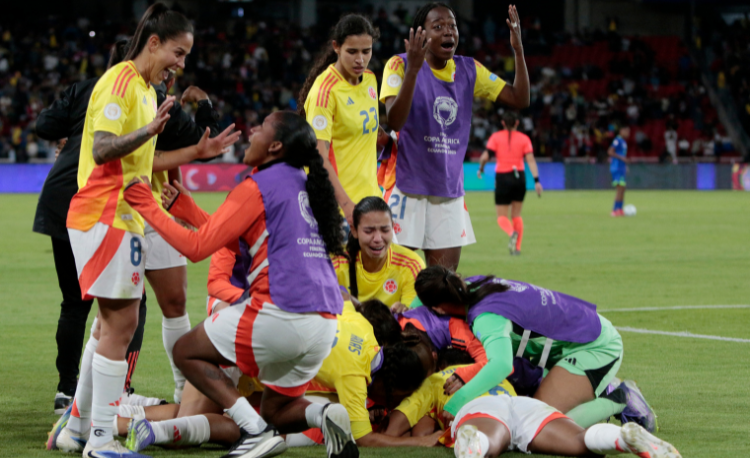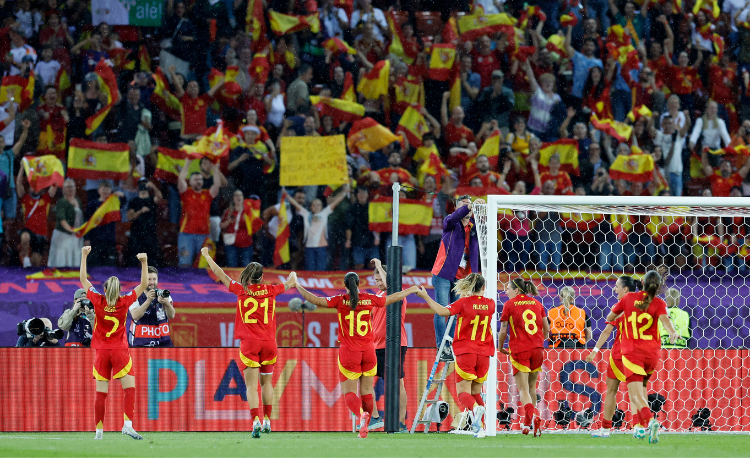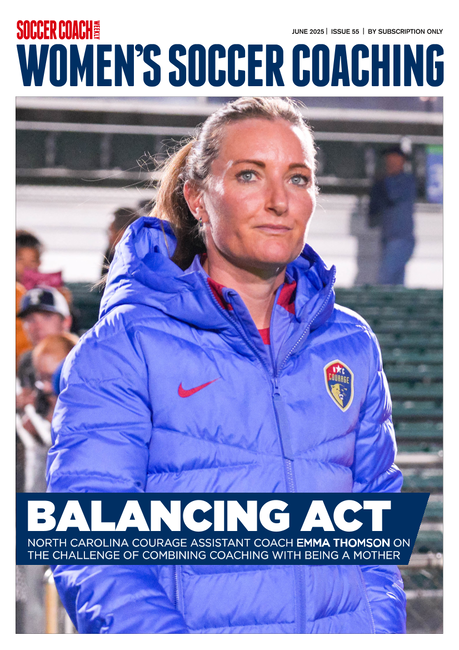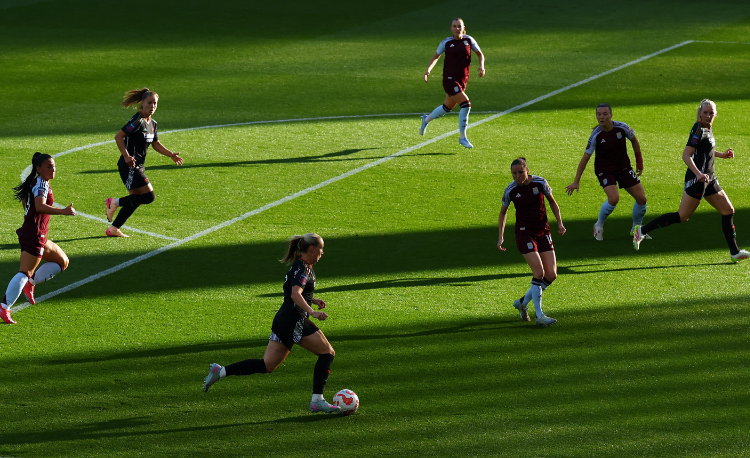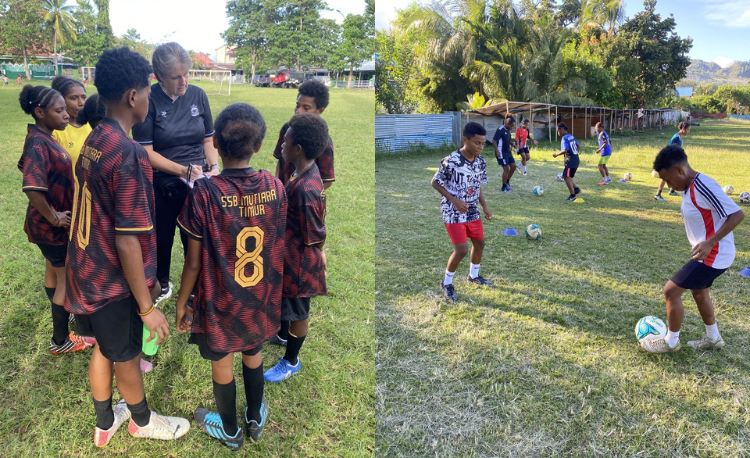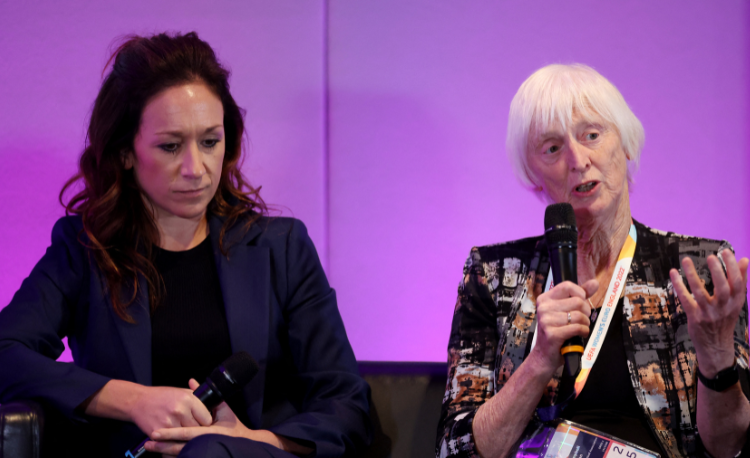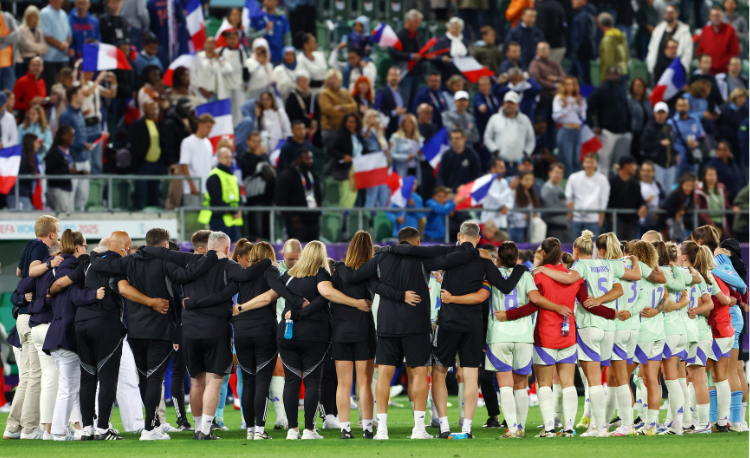You are viewing
1 of your 3 free articles
Inside tournament football: Navigating the demands of elite competition
Physical, tactical and mental preparation... Sara Hilton talks through how to approach elite tournaments
When you enter a tournament environment at the elite level, everything changes. The pace is relentless, the margins are tiny and the demands on your players - and your staff - are constant. You don’t have the luxury of a weekly training cycle. Instead, you’re managing short, high-stakes windows of performance, recovery and preparation. Every decision counts.
You’ve spent months planning, selecting your squad, studying opponents - but once you’re in the tournament, it’s about execution. Your success often hinges on how well you manage the rhythm of matchdays, maintain physical freshness, deliver clarity under pressure and hold your squad together mentally.
Managing the matchday cycle
In tournament football, the matchday cycle becomes your operating system. If you’re playing every four days, the flow typically looks like this:
- Matchday (MD) – Game day: performance, intensity, decisions under pressure.
- MD+1 – Recovery for starters; high-intensity top-up for non-starters.
- MD+2 – Light technical work, tactical review and refocus.
- MD-2 – Main preparation day: team tactics, gameplan walkthroughs.
- MD-1 – Activation and clarity: set plays, sharp movements, final reminders.
- MD – Game time again.
You need to be flexible within that structure, but this rhythm gives your team the stability it needs. You’re constantly balancing recovery with readiness. Between games, there’s barely time to train as normal - so you rely on clear messaging, individual feedback and targeted team work to get players physically and mentally ready.
Physical preparation: Recovery over volume
By the time your players arrive in camp, their fitness levels are already established. Your role is to protect freshness and monitor load. On MD+1, you’re supporting active recovery - ice baths, soft tissue work, pool sessions. For those who didn’t play or saw limited minutes, you run a sharp, condensed pitch session to keep them match-ready.
You’re guided by data - GPS, wellness questionnaires, RPE scores - and by conversations with players and staff. Every individual reacts differently to the demands of tournament play, so you’re constantly adjusting: increasing rest, modifying intensity, or limiting volume to protect players across multiple matches.
Tactical preparation: Simplicity creates certainty
In a tournament, tactical preparation is about prioritisation. You can’t cover everything, and if you try, your players will tune out or feel overwhelmed. So you choose two or three key tactical messages for each game - what you need to do with and without the ball, and how you’ll influence the game emotionally and physically.
You’ll lean heavily on video - short, focused clips that highlight opposition patterns, your intended press, or areas to exploit. You’ll keep team meetings sharp (10–15 minutes), follow up with unit-specific clips and bring those ideas to life on the pitch through small-group walkthroughs and scenario work.
You already know your players are mentally stretched - so you don’t complicate the plan. Instead, you give them confidence through clarity: “This is who we are. This is what we do. Here’s where we’ll win the game.”
The power of video: A technical and psychological tool
Video isn’t just for tactical learning - it’s a powerful psychological anchor.
You use it to reinforce belief. You show clips from training or previous matches where your team pressed well, showed resilience, executed a transition perfectly. You remind players what they’re capable of. Video helps them visualise success. It gives them something to hold onto under pressure.
When analysing the opposition, your framing matters. You highlight vulnerabilities, patterns, and opportunities. You keep the tone confident, not cautious. Your players should walk out of the meeting room feeling informed, not anxious.
You can also use personalised video with individual players - especially those who need reassurance or clarity. One or two clips can reset focus, reinforce identity, or correct a small detail. The best players want feedback. They want to feel prepared. Video gives them control.
Mental preparation: Protecting emotional energy
Tournament football is emotionally intense. You’ll see players riding highs and lows within the same 48 hours. Your job is to protect their energy - not just physically, but emotionally.
You’ll work with your psychology staff to offer regular 1-to-1 support, and you’ll lean on your leadership group to keep standards and spirits high. You also need to build in moments of decompression - downtime, laughter, connection, family contact (if possible). Not every session should be football-focused. Your players need to switch off as much as they need to switch on.
In the final 24 hours before a match, you’re shifting from analysis to belief. Your MD-1 session should feel clean, focused and purposeful. Your final meeting is short. You use video here too - clips that highlight your identity, your strengths, your bravery. You’re not just preparing tactics. You’re preparing emotion.
Rotation and depth: Winning with the whole squad
If you want to win in tournament football, you need to trust your depth. You can’t expect 11 players to carry you through. You’ll be forced into changes - through injury, fatigue, or tactical necessity - and the players coming in need to feel ready, valued and part of the plan.
You build that from day one. You communicate clearly. You involve every player in meetings, feedback and decision-making. You help each of them understand their role - not just on the pitch, but in the squad. The most successful tournament teams often use 20+ players meaningfully. That only happens if everyone feels included.
The margins matter most
Tournament football is unforgiving. Games turn on moments: a late run tracked, a clearance at the far post, a decision made under fatigue. You prepare for those margins. You prepare your players to act under pressure - not by overloading them, but by giving them clear, repeatable tools and confidence in who they are.
Your job isn’t to over-coach. It’s to build belief, manage energy and make sure every player is physically and mentally ready when called upon. That’s the challenge. That’s the craft.
In tournament football, you don’t get second chances. But if you get the cycle right - if you build the right rhythm, keep the message clear and protect your players - you give yourself the best possible chance of doing something special.
Related Files
Newsletter Sign Up
Newsletter Sign Up
Discover the simple way to become a more effective, more successful soccer coach
In a recent survey 89% of subscribers said Women's Soccer Coaching makes them more confident, 91% said Women's Soccer Coaching makes them a more effective coach and 93% said Women's Soccer Coaching makes them more inspired.
*includes 3 coaching manuals
Get Inspired
All the latest techniques and approaches
Women's Soccer Coaching offers proven and easy to use soccer drills, coaching sessions, practice plans, small-sided games, warm-ups, training tips and advice.
We've been at the cutting edge of soccer coaching since we launched Soccer Coach Weekly in 2007, creating resources for the grassroots youth coach, following best practice from around the world and insights from the professional game.
